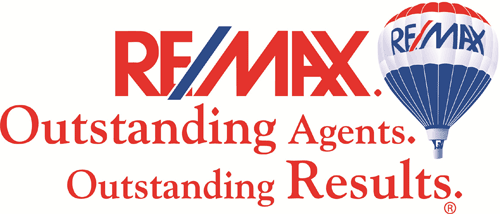Lillian Legault
Sales Representative Représentante immobilier
Lillian@LillianLegault.com www.LillianLegault.com

BROKERAGE Independently Owned and Operated.
Terminology
Tips & Information
Terminology
There are many real estate terms in the industry. The list below will provide you an overview. It is not complete list. However, we hope you can benefit from the most common terms.
Real Estate Terminology
Acre:
an imperial measurement of land area equaling to 43,500 square feet.
Agreement of Purchase & Sale:
a document that is used to state the buyer’s desire to purchase a property, and to negotiate the terms of the sale.
Appraisal:
an estimate of the value of the property by a certified appraiser.
Appraiser:
an individual qualified to estimate the value of the real property.
Assessed Value:
current market value placed on a property as a base for municipal taxation.
Building Inspector:
an individual appointed by the municipality to enforce Ontario Building Code provisions.
Building Permit:
a document issued by the municipality authority certifying the blueprint for construction and allowing work to commence.
Chattel:
personal property which is tangle and moveable.
Close:
final procedure of the sale of a property, and all documents are signed and registered.The ownership of the property is transferred.
Closing Costs:
various expenses associated with the completion of a sale transaction such as document registration, legal fees, property taxes, etc.
Collateral:
asset offered to secure loans or other credits.
Conditions:
requirements that must met for a transaction to take place as per the agreement of purchase and sale.
Condominium:
ownership of a specified amount of space in a multiple dwelling.
Condominium Fees:
monthly payment by owners to a condominium management corporation which the money is being allocated to pay expenses.
Date of Completion:
date specified in the agreement of purchase and sale, when the buyer is to deliver the balance of money due and the seller is to deliver the deed and vacant possession of property.
Deed:
legal document that conveys title or an interest in real property.
Down Payment:
buyer’s cash payment towards the property. Difference between purchased price and amount being owed.
Easement or Right of Way:
a right enjoyed by one landowner over the land of another. An access being granted to a person or a utility company other than the property owner.
Electrical Inspection:
an analysis of a structure’s electrical components, usually conducted by a local utility company or an electrical expert.
Equity:
the financial value of someone's property over and above the amount the person owes on mortgages or the debts against it.
Fixture:
a fixture is real property, permanent improvements to a property that may not be removed with the transfer of real estate.
Hectare:
a metric measurement of land area equivalent to 2.4711 acres.
Land Transfer Tax:
a tax that applies to real estate ownership transfer, mandatory by the provincial government, and paid by the purchaser of the property on closing day. It`s based on the selling price of the property.
Market Value:
defined as the highest price in terms of money which the property will bring to a willing seller if exposed for sale on the open market allowing a reasonable time to find a willing buyer.
Minor Variance:
small variations from the zoning by-laws.
Ontario Building Code:
OBC – a provincial code establishing minimum standards for building design.
Ontario Fire Code:
OFC – a provincial code setting out compliance criteria for fire safety.
Real Property:
land and any items that are permanently attached to the land.
Realtor®:
a registered trademark that my only be used by an active member of real estate board affiliated with CREA (Canadian Real Estate Association).
Title:
evidence by which the owner of property has lawful ownership.
Title Insurance:
insurance for lenders and owners concerning various risks and undisclosed interests affecting title.
Valuation:
the act of estimating the worth of real property.
Zoning:
government laws that control the use of land within a jurisdiction.
Mortgage Terminology
Amortization:
gradual retirement of debt by means of partial payments of the principal at regular intervals.
Amortization Period:
the actual number of years it will take to pay back your mortgage loan.
Assumable Mortgage:
allows the buyer to take over the seller’s mortgage on the property.
Blended Payment:
principal and interest payments of a mortgage that are combined in accordance with an amortization schedule.
Canadian Mortgage Housing Corporation (CMHC):
a government agency provides mortgage loan insurance for high ratio mortgage as well as participating various housing related activities.
Conventional Mortgage:
a mortgage loan issued up to 80% of the property’s appraised value.
Gross Debt Service (GDS) Ratio:
lender’s allowable ratio of principal, interest and tax (PIT), condo fees (where applicable) payment to the gross monthly income of the mortgage applicant.
High Ratio Mortgage:
a mortgage that exceeds 80% of the property’s appraised value. These mortgages must be insured for payment.
Interest Adjustment Date:
date that the mortgage officially begins.
Interest Rate:
a percentage charged by the lender for the use of the lender’s money.
Maturity Date:
end of the term of the mortgage loan at which you can renew or pay off the mortgage.
Mortgage:
a conveyance of property to a creditor as security for payment of a debt with a right of redemption upon payment of the debt.
Mortgage Commitment:
a written documentation by a lending institution to a borrower that it will grant a mortgage loan on a property, for a certain amount under specified terms and conditions as set out in the commitment document.
Mortgagee:
lender.
Mortgagor:
borrower.
Portability:
a mortgage option where the borrower is able to transfer his current mortgage to another property without penalty.
Principal:
amount borrowed and owing on a mortgage loan.
Term:
actual length of time for which money is loaned. i.e. term of a mortgage.
Total Debt Service (TDS) Ratio:
lender’s allowable ratio of principal, interest and tax (PIT) payment PLUS other personal debt to gross monthly income of the mortgage applicant.
Variable Rates:
a mortgage with fixed payments and with fluctuating interest rates.
RE/MAX HALLMARK REALTY GROUP LTD., 101 – 2255, av Carling Ave, Ottawa, ON K2B 7Z5
Tel/Tél: 613-596-5353 Fax/Téléc: 613-596-4495
Independently Owned and Operated Brokerage
Ottawa West | Ottawa Central | Ottawa South | Ottawa East | Stittsville | Kanata | Barrhaven | Richmond | Carleton Place | CANADA
Trademarks owned or controlled by The Canadian Real Estate Association under license.
Information Deemed Reliable But Not Guaranteed.
© Copyright 2013 Lillian Legault

Interconnected Real Estate Software for Brokers and Agents




